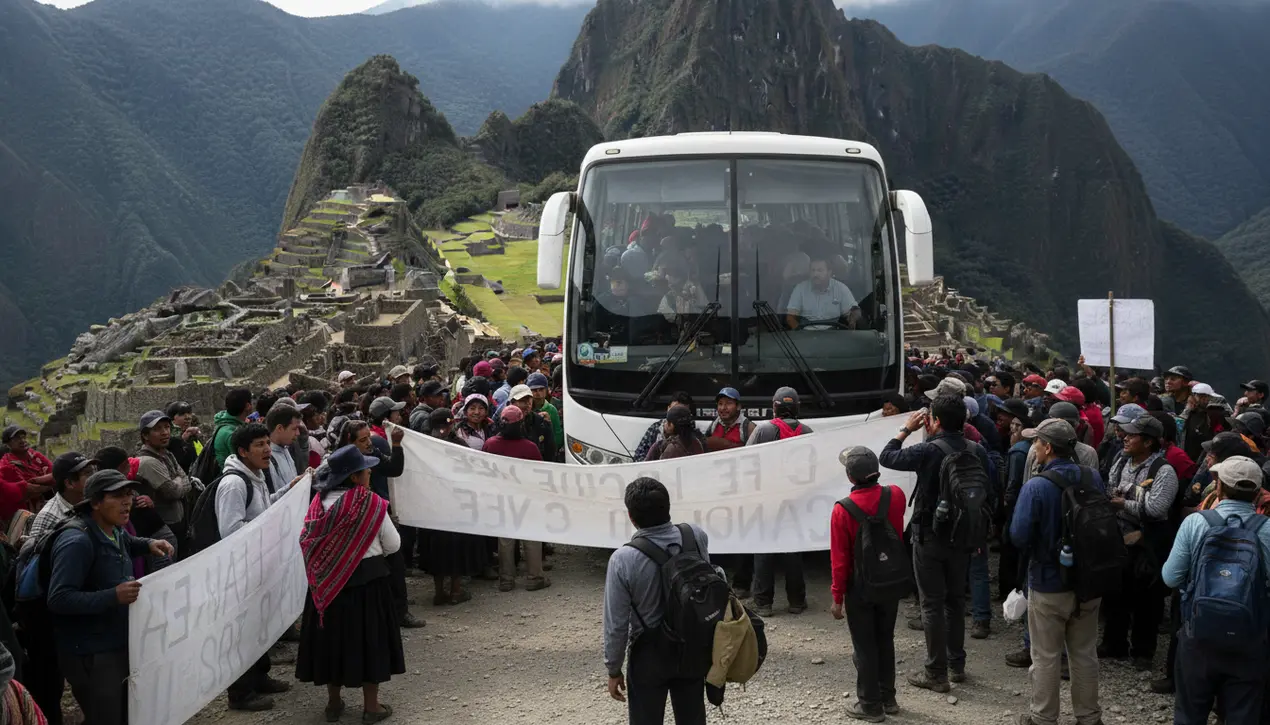
Othertravel & tourismDestinations and Guides
Tourist Bus Protests at Machu Picchu Site
EM
Emma Wilson
16 hours ago7 min read2 comments
The ancient stone terraces of Machu Picchu, a UNESCO World Heritage site that has drawn pilgrims and tourists to Peru's Andes for generations, echoed not with the usual murmurs of awe-struck visitors this week but with the determined chants of protestors. A simmering local dispute has boiled over, targeting the very coaches that ferry thousands of visitors daily up the winding, precipitous road from the town of Aguas Calientes to the citadel's gates.This is not an isolated grievance but a flashpoint in a long-running conflict over the economic spoils and environmental costs of mass tourism, a tension felt from the Himalayas to the Acropolis. The protestors, largely comprised of local residents and workers from the nearby Cusco region, are demanding a more equitable distribution of the revenue generated by the bus service, which is operated by a private consortium.They argue that while the company profits handsomely, the local communities bearing the brunt of the congestion, pollution, and wear on infrastructure see far too little in return. The scene was one of potent symbolism: the silent, majestic Incan ruins, a testament to a lost civilization, looking down upon a very modern struggle over resources and power.This disruption immediately impacted hundreds of international travelers, whose meticulously planned journeys to one of the New Seven Wonders of the World were thrown into chaos, highlighting the fragile interdependence between global tourism and local realities. The Peruvian government, which relies on tourism as a critical economic pillar, now faces a delicate balancing act.A heavy-handed response risks amplifying the conflict and damaging the country's international image, yet capitulation could encourage similar protests across other tourist hotspots, creating a domino effect of instability. The core issue extends beyond bus fares; it's a referendum on a model of tourism that often prioritizes visitor numbers over community benefit and site preservation.Similar protests have erupted in places like Venice and Barcelona, where residents have pushed back against what they term 'overtourism,' a phenomenon that degrades quality of life and threatens cultural heritage. The standoff at Machu Picchu serves as a stark warning: the world's most cherished landmarks are not merely backdrops for vacation photos but are living, breathing places embedded in complex social and economic ecosystems. The resolution, or lack thereof, will set a precedent for how Peru and other nations manage the double-edged sword of a global travel boom, forcing a difficult conversation about sustainability, equity, and the true cost of wonder.
#featured
#Machu Picchu
#Peru
#tourist buses
#protests
#heritage site
#tourism impact
Stay Informed. Act Smarter.
Get weekly highlights, major headlines, and expert insights — then put your knowledge to work in our live prediction markets.
Comments
Loading comments...
© 2025 Outpoll Service LTD. All rights reserved.